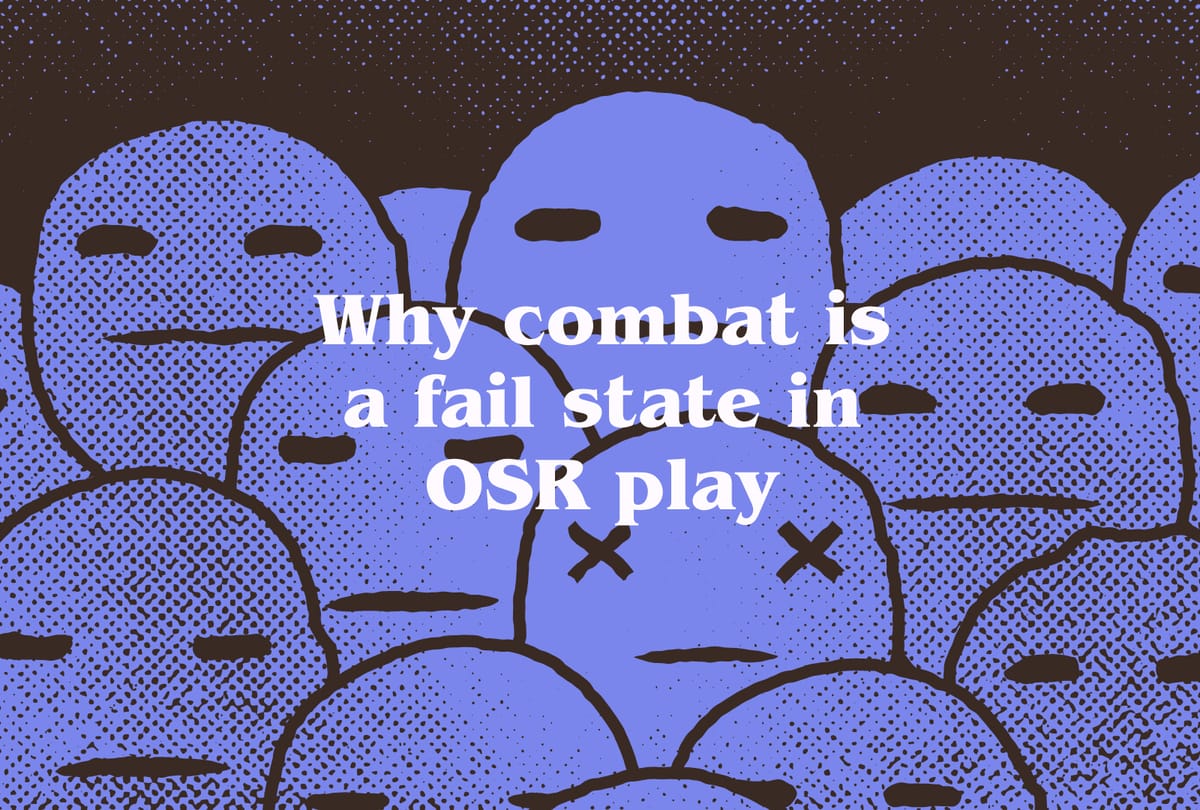I stumbled across this blogpost as I was lurking around social media and man, this really crystallized some of the things that I just can’t really wrap my head around with OSR:
Revisiting the old-school maxim "Combat is a fail state" and redefining what it means at my table and as a design theory for the OSR.

www.explorersdesign.com
The portion that really stuck out to me was this:
Back when I was playing 1e/2e, we typically had 7 or 8 players at the table, at least a couple of which had henchmen or retainers. When we played as kids, we weren’t thinking about avoiding combat. We avoided some combat because everyone knew mind flayers ate your brains, vampires drained your precious experience points, and beholders flat out disintegrated you, but if you weren’t one of those, we felt pretty confident our party of 8+ could take your gang of orcs. Our stance mirrored the stance of the dungeon, if that makes sense. Temple of Elemental Evil? Be sneaky. Slavelords? Who doesn’t like kicking the crap out of slavers?
I also just can’t wrap my head around the idea that the rules are something there for when your imagination fails. To me, it’s the opposite. The rules are the default - here’s what you can absolutely do, but it’s not the
only thing you can do and try to experiment and interact a bit. But I don’t treat combat as a fail state unless the game says so.
Call of Cthulhu says so. Mothership says so. D&D never said “don’t fight those monsters, it’ll go badly for you.”
Another one that gets my goat: the answer is not on your character sheet. Every ability, item I have, and relevant score is on the character sheet. Modern OSR eschews long blocks of text in favor of brief descriptions. But one of the things those sometimes obnoxiously long blocks of text did was give you a full accounting of what was in a room to interact with, sometimes down to the smallest detail. I find GMs struggle with the “less is more” room descriptions. If the answer is not on my character sheet, it’s also not typically in the room description of a modern OSR game.
So where is the answer?
I call BS on the maxim. The answer is most certainly on your character sheet but if you want to find other answers, you may be able to find them elsewhere.
Anyways, really good article that addresses at least some of the incongruity in OSR that I’ve seen. I still feel like I’ve yet to find the OSR game that really speaks to me probably because I’m so at odds with these core maxims. Maybe I just stick with 1e/2e.




